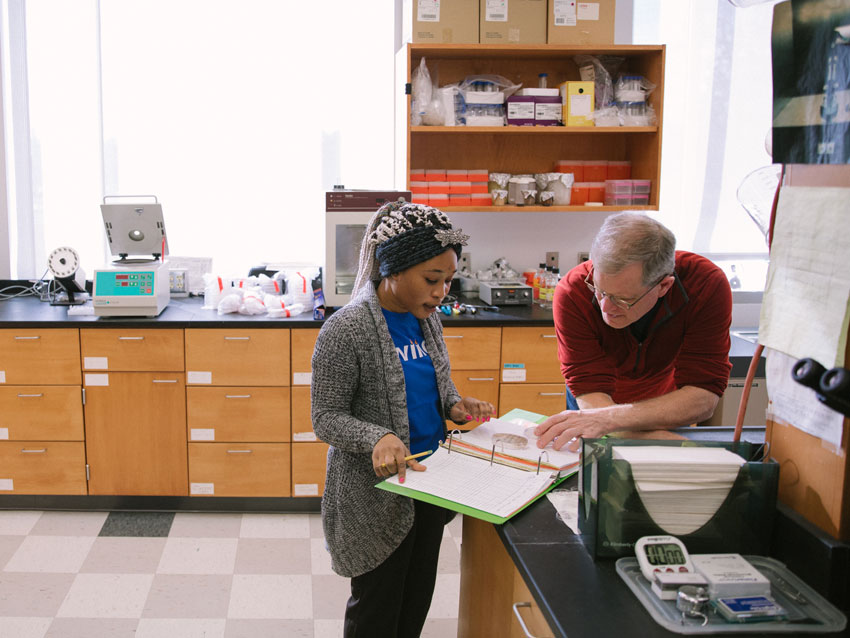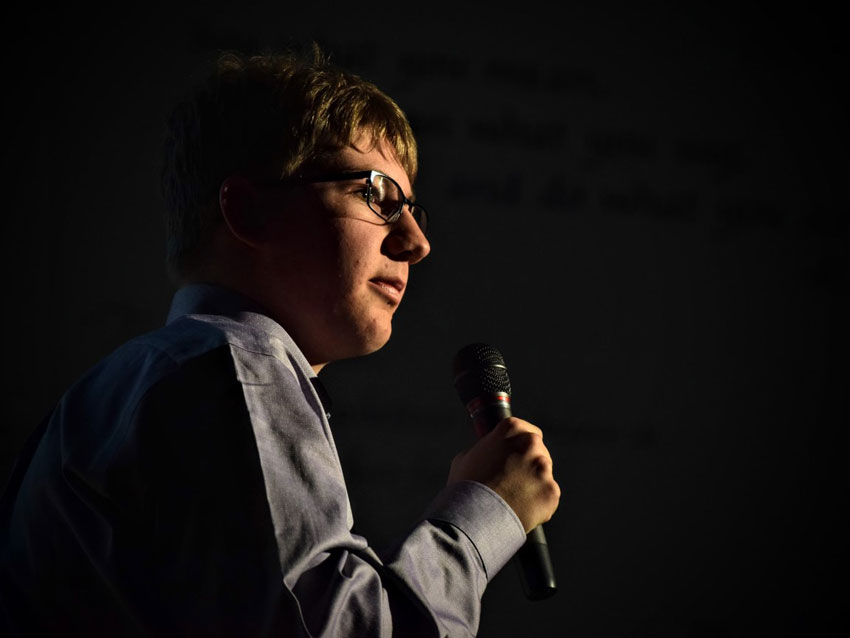Your academic studies at Gettysburg College will allow you to grow and connect.
You will build a self-awareness that allows you to define how your education can impact your future. You will also enjoy a well-rounded experience that will shape your education beyond your program, gaining knowledge you can relate to other coursework.
As you plan your first semester, here are three helpful tips:
- Look to build upon your high school education.
- Create preliminary goals, recognizing your intellectual interests.
- Select courses that capture your attention, boost your curiosity, and connect to your passions.
Make the most of this opportunity to explore and learn in new ways, while remembering the requirements and recommendations outlined by academic departments and programs.
Learn more about our academic programs
The Gettysburg Curriculum
At Gettysburg College, you will develop the ability to acquire and process information and ideas, allowing you to become an interactive thinker, skilled communicator, and informed citizen.
Our curriculum is designed to develop lifelong learners. Four key elements help shape it: multiple inquiries, integrative thinking, effective communication, and informed citizenship.
Learn more about the hallmarks of the Gettysburg Curriculum
Specifically, five programs set our curriculum apart — the Civil War Institute, the Eisenhower Institute, the Garthwait Leadership Center, the Center for Public Service, and the Sunderman Conservatory of Music. Through these offerings, you will engage in interdisciplinary learning, advanced scholarship, and global leadership.

For Ricardo Miranda ’21, Rouwaida Nitiema ’21 and Claire Woodward ’20, they all conduct research with professionals in the science field, balance labs, courses, and extracurricular activities, and pursue their passions in a liberal arts and sciences setting. While they all spend time in science, technology, engineering, and mathematics (STEM) fields, the curriculum allows them to take part in their other interests in and out of the classroom, from German studies to music.
Want to see a day in their lives? Follow along!
First-Year Seminars
The First-Year Seminar (FYS) program prepares you for the level of intellectual curiosity and critical thinking required for college-level work by offering the benefits of an experience typically reserved for college seniors.
“I didn’t expect my First-Year Seminar to be anything more than a college class, but all of us were able to connect with one another over a shared experience.”
— philosophy and public policy double major Piper Mettenburg ’21
You will work closely with a faculty member and a small group of peers to explore a topic and develop skills in writing, speaking, critical thinking, quantitative reasoning, and technology.
Plus, all students in a First-Year Seminar live in the same residence hall, which provides them an opportunity to integrate their academic and residential lives.
Learn more about First-Year Seminars

A project that began for Carter Hanson ’23 in his First-Year Seminar, The Mathematics of Voting, developed into an award-winning submission in a congressional map competition. Embarking on this project allowed him to learn more about the importance of democracy and he is now considering being a political journalist upon graduation.
Read how Hanson discovered a potential career path thanks to his First-Year Seminar
Center for Student Success
After you are registered for courses for the fall, you will be assigned a first-year advisor. Individual advisors are assigned AFTER reviewing the information about you in the First-Year Dashboard and looking at the courses you have chosen in order to match you with someone who will be a good fit and to maximize the amount of contact you will have in your first semester. You will have the opportunity during Orientation to meet one-on-one with your faculty advisor to finalize your course choices for the fall. All first-year advisors are generalists, regardless of the subject area in which they teach. Your first-year advisor can help you understand our curricular requirements, make important choices about your first year, troubleshoot problems and issues, and point you in the right direction when you are ready to declare a major.
When you declare a major, you will have the option to request a new advisor relevant to your program. Take an active role in developing this relationship to ensure it aligns with your education.
You can also seek advice from the Deans in the Center for Student Success, as well as offices that offer desired programs or services, such as the Center for Career Engagement, the Center for Global Education, the Center for Public Service, the Office of Multicultural Engagement, and the Registrar’s Office.
Learn more about academic advising